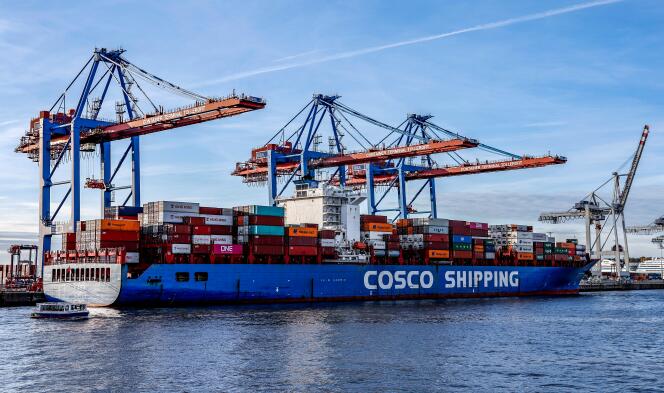The figure is dizzying and, for several months, it has obsessed Europeans: 400 billion euros. This is the European Union (EU) trade deficit with China in 2022, “the highest in history”underlined the President of the Commission, Ursula von der Leyen, on November 16, during a speech in Berlin. “In 2019, it was only 180 billion euros: its rapid growth is worrying”, analyzes Sébastien Jean, specialist on the subject at the National Conservatory of Arts and Crafts.
Above all, this deficit illustrates a paradox: at a time when Europeans are seeking to reduce their dependence on China, they have never been so linked to it. This subject will be one of those on the menu of the EU-China summit which will be held on December 7 and 8 in Beijing, against a backdrop of growing tensions between the two parties and geopolitical uncertainties.
In recent months, the leaders of the Old Continent have increased their visits to Beijing and made strong declarations. “ Mutual trust has been undermined », decided the high representative of the EU for foreign affairs, Josep Borrell, on October 13. The EU and China must not fear “difficult discussions”assured the Commissioner for the Internal Market, Thierry Breton, on November 10. “From now on, Europe is clearly more offensive”summarizes Laurent Malvezin, co-founder of Sinopole, a study group on the Chinese economy.
On September 13, the Commission launched an investigation into the country’s subsidies for its electric cars. “Given the size of the market, this should be the biggest investigation in its historynotes Philippe Dauba-Pantanacce, director of geopolitical research at Standard Chartered bank. Others could follow, for example on wind turbines. »
Leading supplier of goods
Let’s return to the 400 billion euros deficit. “They are the intentional result of Chinese policy”criticized Ursula von der Leyen on November 16, in reference to the massive subsidies in certain sectors and the industrial overcapacity of the Middle Kingdom. “Despite talk about rebalancing towards consumption, its economic model remains largely focused on production, which is very sustained”, explains François Chimits, researcher at the Mercator Institute for China Studies. Result: Xi Jinping’s country exports its imbalances – and therefore its low-cost subsidized products – to the rest of the world.
And this, to the detriment of its partners’ industries. Already in the early 2010s, the European solar panel industry had been crushed by the import of inexpensive Chinese panels. “Today, Europe is also dependent on China for rare earths and minerals essential to the green transition”, adds Elvire Fabry, of the Jacques Delors Institute. And Beijing remains, by far, our leading supplier of goods.
You have 55% of this article left to read. The rest is reserved for subscribers.
